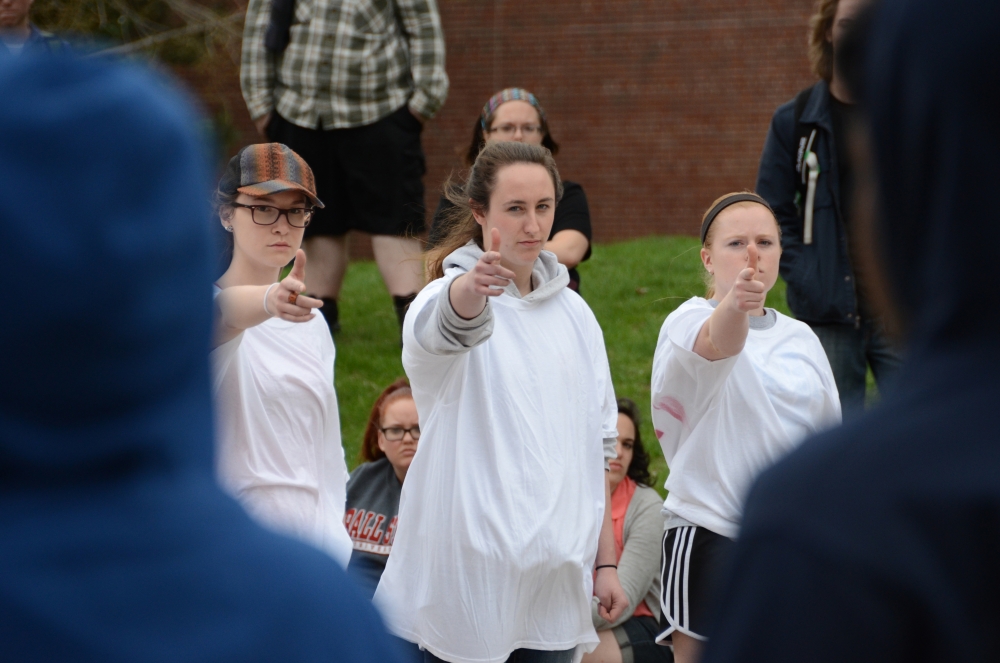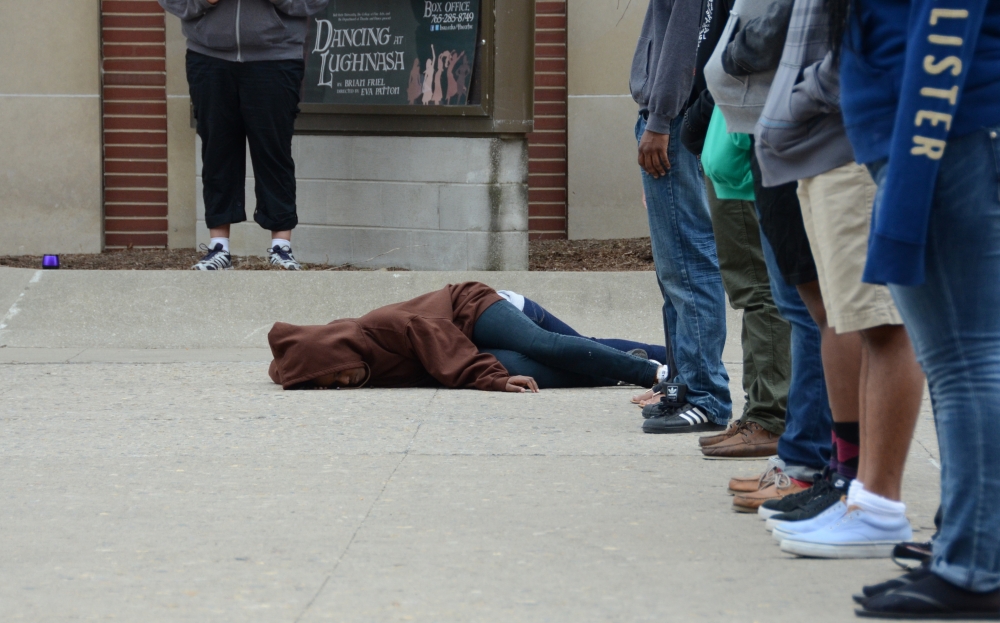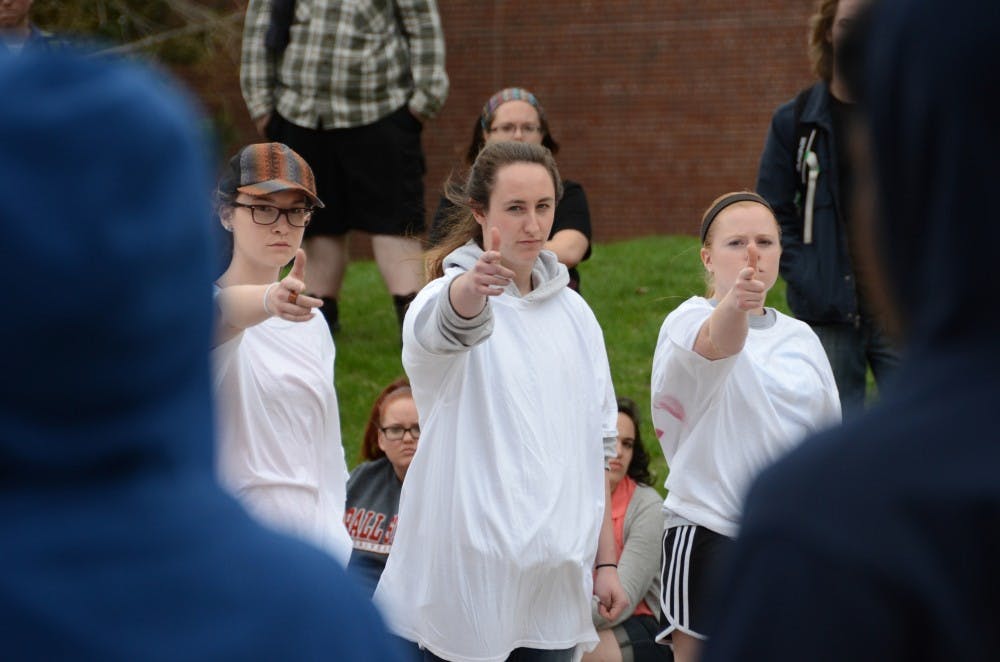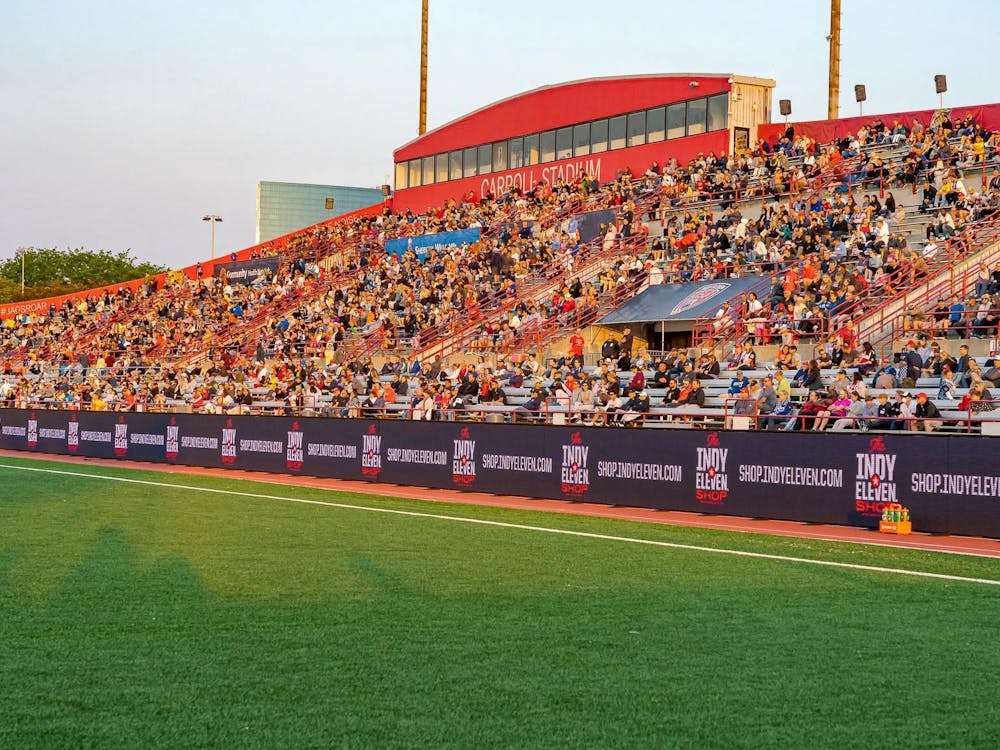
Theatre majors Abigal Michelle, Jessica Banaszak and Jessica Morrison participated in the protest hosted by the Ethnic Theatre Alliance. Morrison said playing a role against her friends in ETA was unnerving. DN PHOTO LAUREN CHAPMAN
Students then read out the legal action taken after the people named had died. With most of them, the students announced the legal action as “no justice.”
Members of the Ethnic Theatre Alliance hosted the performance art demonstration Monday outside of Bracken Library to highlight injustice against the black community in the United States.
Audrey Eldridge, a junior theatre production major, was one of the students who read names.
“Trayvon Martin and Jordan Davis were the straw that broke the camel’s back,” Eldridge said. “We thought we needed to come out here and scream about it and let people know that this is not new. This has been going on for a very long time, and we need to do something about it before it escalates further.”
The emotionally charged protest pitted classmates against one another, divided by their race.
Jessica Morrison, a junior theatre major, said participating was unnerving.
“Personally, it felt weird to be in that situation,” Morrison said. “I didn’t like it. Hearing those stories, all of them, I didn’t realize there were that many of them. It’s atrocious that all these stories actually happened.”
On the opposite side of the firing squad, Kelsey Johnson, vice president of ETA and a sophomore theatre major, said the experience was emotional for her.
“Seeing my friends who were on the other side, who were the shooters, and standing with my friends and falling with them — it was such an emotional experience that I wasn’t expecting it to be,” Johnson said.
Karen Kessler, an associate professor of theatre and adviser for the group, said teaching theatre students to use their voice for social justice could be empowering.
“There’s a feeling that, as individuals, we are impotent to doing anything about these things that are happening,” Kessler said. “But as artists, we can raise our voices. That’s what we have: our voices to raise. And we can do that, and that’s important to us.”
ETA recently started in the hope that ethnic issues could be brought to the forefront and that a conversation could be started, the group said. Nathaniel Thomas, ETA president and a sophomore theatre major, said the conversation could start with theatre.
“Theatre is a vessel for a lot of communication around the world,” he said. “And if we can use it properly and we can use it in a positive manner to make things happen, there’s no reason we should keep our voices shut.”
The group passed out fliers with the contact information of local politicians and foundations to get involved with to combat social injustice. Johnson said the first step is the easiest.
“First, you have to talk about it,” Johnson said. “It’s not offensive to anyone in any way to talk about these issues. I think, in the United States, we still haven’t healed from our past. And it’s because people are afraid to talk about it. This will, hopefully, spark a dialogue between people of every color, of every ethnicity, of every nationality.”
Dee Dee Batteast, a theatre instructor and another adviser to the group, said empowering students outside of the theatre department was a goal for the protest.
“You have the right to say something,” Batteast said. “You have the right to an opinion on what is happening in your country.”
For Thomas, the experience as a black man from Atlanta was harrowing.
“I actually cried at the noon [protest], after I fell,” he said. “I died second, so I had a long time to listen to the rest of the names. It finally hit me while I was sitting there. This could be me. The truth of the matter is, Florida is three hours away from my home. There’s no reason a situation like that couldn’t be me. I could have been Jordan Davis. I could have been Trayvon Martin. So many of my friends could have been them.”






